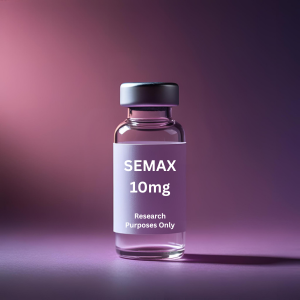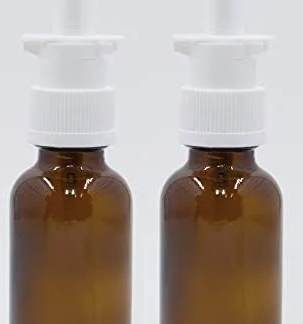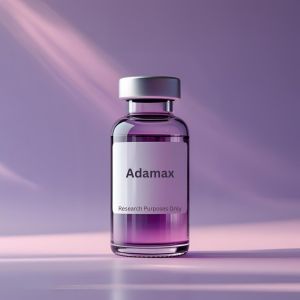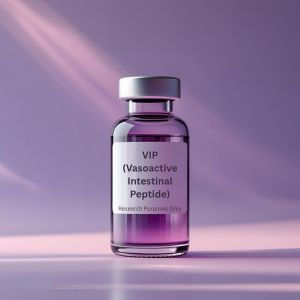Free shipping on orders over $250
VIP (Vasoactive Intestinal Peptide)
$60.00
VIP (VASOACTIVE INTESTINAL PEPTIDE) 5mg
Vasoactive Intestinal Peptide (VIP) is a naturally occurring neuropeptide with widespread functions throughout the body, including the immune, nervous, cardiovascular, and digestive systems. Its benefits stem largely from its potent anti-inflammatory and immunomodulatory properties. VIP is being studied as a potential therapeutic agent for a range of acute and chronic conditions.
Important Notices:
- This product is sold for scientific research purposes only.
- Product is provided as a lyophilized (freeze-dried) powder in a sealed, sterile vial.
- The quantity on the label refers to the total amount of product inside each vial.
- Additional lab supplies are required for conducting research such as bacteriostatic water for reconstitution, syringes & needles to draw from the vials, and alcohol prep pads for sanitizing vial stoppers prior to needle insertion. These are sold separately.
- Vial appearance, label, seal and cap colors may vary from product photos.
10 in stock
SKU: VIP-5mg
Categories: All Peptides, Peptides for Brain Function, Peptides for Healing
Tags: anti-inflammatory, buy vip peptide, digestion, improved sleep, metabolic, vasoactive intestinal peptide, vasoactive intestinal peptide for sale, vasoactive intestinal peptide vip, vasodilation peptide, vip 5mg peptide, VIP peptide, vip peptide benefits, vip peptide buy, vip peptide for sale
Description
Research suggests the following potential benefits:
Anti-inflammatory and immune benefits
- Controls chronic inflammation: VIP regulates the body’s immune response by balancing anti- and pro-inflammatory mediators. Its ability to reduce chronic inflammation is being investigated for the treatment of autoimmune conditions such as multiple sclerosis, Crohn’s disease, and rheumatoid arthritis.
- Supports oral tolerance: In research, VIP has been shown to enhance oral tolerance, a process that prevents the immune system from overreacting to ingested substances like food.
- Aids in septic shock: By suppressing excessive inflammatory responses, VIP has been observed to prevent death in experimental models of septic shock, an acute inflammatory condition with high mortality.
Nervous system benefits
- Neuroprotection: VIP helps protect neurons from damage and encourages the growth of new neurons. It has also demonstrated neuroprotective effects in models of neurodegenerative diseases, including Alzheimer’s and Parkinson’s.
- Cognitive support: By promoting healthy blood flow to the brain and reducing neuroinflammation, VIP may support cognitive function and help with symptoms like brain fog.
- Modulates brain activity: In the hippocampus, the brain’s learning and memory center, VIP plays a key role in controlling neurotransmission and synaptic plasticity.
- Aids in nerve regeneration: VIP promotes the survival and regeneration of neurons following injury.
Digestive system benefits
- Regulates gut health: VIP is vital for maintaining the health of the gastrointestinal tract. It supports the integrity of the intestinal epithelial barrier and helps regulate the balance of gut microbiota.
- Enhances digestion: It regulates key digestive functions, including gastric acid secretion, intestinal contractions, and the release of water and enzymes from the pancreas.
- Combats intestinal inflammation: As a potent anti-inflammatory mediator, VIP contributes to gut bacterial tolerance and may be beneficial for managing inflammatory bowel diseases.
Cardiovascular and respiratory benefits
- Vasodilation: VIP induces the relaxation of smooth muscles in blood vessels, which improves blood flow and lowers blood pressure.
- Cardiac protection: Animal studies suggest VIP may protect the heart from injury caused by cardiac ischemia (reduced blood flow).
- Respiratory support: Research shows that VIP can reduce airway inflammation and hyperresponsiveness in models of asthma, which enhances airway relaxation.
Other potential benefits
- Metabolic regulation: VIP can transiently improve insulin sensitivity and regulate the release of insulin and glucagon from the pancreas.
- Bone health: VIP plays a role in regulating bone metabolism and has been shown to prevent chronic cartilage damage in osteoarthritis models.
- Circadian rhythm synchronization: The peptide plays a role in regulating circadian rhythms, which are crucial for maintaining the body’s internal clock
Related products
-

SEMAX
$35.00 Add to cart -

NASAL RESEARCH KIT
$15.00 – $20.00Price range: $15.00 through $20.00 Select options This product has multiple variants. The options may be chosen on the product page -

Adamax
$140.00 Add to cart

